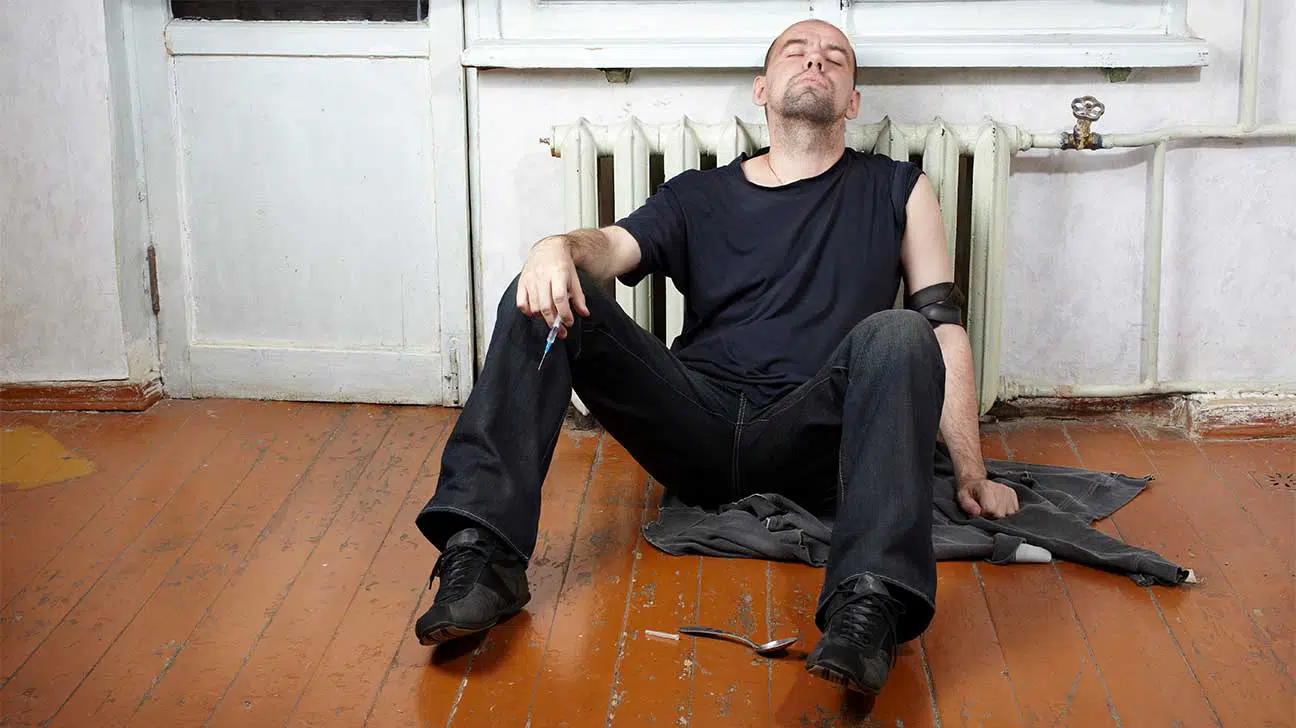Mental Signs Of Heroin Overdose
Heroin overdose is a major public health concern. The signs of a heroin overdose are both physical and mental, due to the effect the drug has on the brain and body. Overdosing is very dangerous, but also treatable if quickly dealt with.

Substance use disorders such as heroin addiction can lead to increased use of the drug. This is often done to satisfy cravings, avoid withdrawal symptoms, and maintain a euphoric state.
In turn, this increased drug use can lead to an increased risk of overdose, as well as drug overdose deaths. In fact, about a third of all opioid overdose deaths involve heroin use.
There are many signs of a heroin overdose, including both mental and physical signs of a heroin overdose.
Read on to learn about the mental signs to look out for.
Mental Signs Of A Heroin Overdose
Overdose may occur when a person has used a large dose of heroin by itself, or when they have used heroin cut with a synthetic opioid, such as fentanyl.
An overdose can gradually build over the course of a few hours, so the mental effects may not be noticeable right away.
Drowsiness And Heavy Nodding
Drowsiness is a very common side effect of heroin use. This is because the euphoric high experienced with the use of this drug is followed by a trance-like state of drowsiness.
When experiencing an overdose, however, that drowsiness becomes much stronger. A person may be nodding heavily in an effort to try to stay conscious or fall asleep standing up.
Slurred Speech
A person may slur their speech while experiencing an overdose. This is because of the sedative effect that heroin has on the brain, resulting in a loss of brain function and coordination.
Alternatively, even if they are not slurring their words, the words they are saying may not make any sense.
Disorientation, Delirium, And Anger
If heroin drug abuse has led a person to overdose, they will likely be very disoriented and delirious.
This is due to the fact that they are experiencing both the trance-like, sedated state of heroin use and some real-world stimulus at the same time.
They may become confused about what is happening to them and lash out in anger in response to their confusion.
Unresponsiveness And Loss Of Consciousness
People experiencing an opioid overdose may also be unresponsive. They may look conscious and awake, but do not respond to speech, sounds, or any outside stimulus.
An outside stimulus can include shouting, shaking, pinching, or another method of arousal. They may also lose consciousness altogether.
Responding To A Heroin Overdose
If a loved one is experiencing any form of drug overdose, remain as calm as possible. Treatment for heroin overdose is best done by a professional, but your quick response could be life-saving.
Here are immediate steps you can take to treat an overdose:
- Check if they are breathing. Stimulate breath by rubbing knuckles hard on the breastbone.
- Call the emergency department (911). Give details such as their location, which drugs and dosages were involved, and their physical description.
- Give rescue breaths: Tilt the head up by lifting the chin, and pinch the nose. Cover their mouth with yours and give two quick breaths. Continue to give one breath every five seconds.
- Administer naloxone: If possible, administer naloxone (a life-saving opiate blocker) in the form of a shot or a nasal spray immediately. It is available without a prescription as Narcan spray.
- Repeat processes as needed: Continue to give rescue breaths until help arrives.
Do not leave the person, even after they show signs of improvement. If needed, put them in the recovery position: on their side, mouth pointing down, arms and legs out to stabilize them.
The Role Of Harm Reduction In Treating Heroin Overdoses
The rise in prescription opioid abuse due to the opioid crisis has led some people to turn to heroin use. This has made heroin overdose an even more serious public health concern.
Harm reduction and prevention services have been incredibly important to treat this.
Clean needle programs, safe injection sites, and easy access to Naloxone have been indispensable. These human services programs prevent overdoses before they happen.
Heroin Treatment And Behavioral Health At Spring Hill
If you or a loved one are in need of heroin addiction treatment, don’t wait. Contact the drug addiction healthcare providers at Spring Hill Recovery Center today.
The mental health services and support groups offered by our treatment providers can help you, a friend, or a family member recover after an overdose and work toward a sober future.
We offer dual diagnosis services for mental illness, methadone and buprenorphine in our medication-assisted treatment program, and more.
Call our helpline now to learn more about opioid use disorder services.
- Centers for Disease Control and Prevention (CDC) — Seizure First Aid https://www.cdc.gov/epilepsy/about/first-aid.htm
- Drug Enforcement Administration (DEA) — Heroin Fact Sheet https://www.dea.gov/factsheets/heroin
- National Institute of Health (NIH) | National Center for Biotechnology Information (NCBI) — Heroin overdose: causes and consequences https://pubmed.ncbi.nlm.nih.gov/11487418/
- National Institute of Health (NIH) | National Institute on Drug Abuse (NIDA) What can be done for a heroin overdose? https://nida.nih.gov/publications/research-reports/heroin/what-can-be-done-for-heroin-overdose
- Substance Abuse and Mental Health Services Administration (SAMHSA) Opioid Overdose Prevention Toolkit https://store.samhsa.gov/product/Opioid-Overdose-Prevention-Toolkit/SMA18-4742


